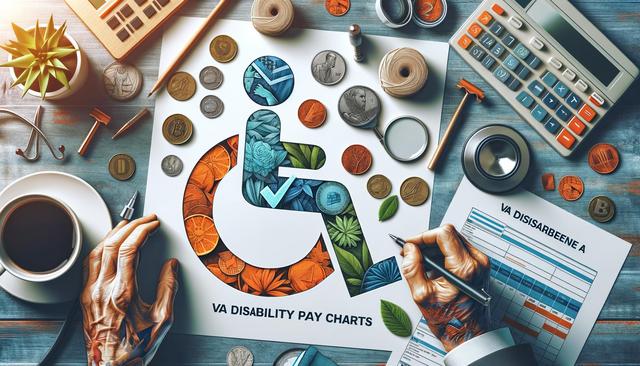Expanded Financial Assistance Programs
In 2025, VA survivors can expect enhanced financial assistance options as part of broader efforts to improve support for families who have lost a loved one who served. These programs aim to address the economic challenges that many survivors face, especially those who relied heavily on the veteran’s income. One of the most significant updates includes adjustments to Dependency and Indemnity Compensation (DIC) rates, which will see modest increases to reflect inflation and cost-of-living adjustments. This allows surviving spouses and dependents to maintain better financial stability over time.
Additionally, survivors may now qualify for expanded eligibility under the Survivors Pension program. This includes higher income thresholds and more flexible criteria regarding net worth and asset limits. These changes are especially beneficial for older survivors who may have previously been ineligible due to minor financial disqualifications. Key financial support programs in 2025 include:
- Updated DIC rates reflecting national cost-of-living changes
- Flexible eligibility for the Survivors Pension program
- Expanded retroactive payment provisions for newly qualified applicants
These adjustments are designed to ensure that VA survivors are not left behind financially and can access the resources they need to live with dignity.
Improved Access to Health Care Services
Health care remains a vital concern for VA survivors, particularly spouses and dependents who relied on VA health services during the veteran’s lifetime. In 2025, access to these services has been broadened under the CHAMPVA (Civilian Health and Medical Program of the Department of Veterans Affairs) program. Eligibility for CHAMPVA has been extended to include more surviving spouses and children, particularly in cases where the veteran died from a service-connected condition or during active duty.
Survivors can now benefit from enhanced coordination with local health care providers and digital healthcare platforms. Online appointment scheduling, telemedicine consultations, and prescription management tools are now integrated with CHAMPVA, making it easier for survivors to receive care without the need for extensive travel. These improvements are particularly impactful in rural or underserved areas.
Notable 2025 updates include:
- Expanded CHAMPVA eligibility for dependents
- Integration of digital health tools and telemedicine services
- Streamlined application and re-enrollment processes
These enhancements reflect an ongoing commitment to making high-quality healthcare more accessible and responsive to the needs of VA survivors.
Educational Benefits and Career Support
Education and career development remain central to helping survivors rebuild their lives. The VA has introduced new educational benefits in 2025 to support surviving dependents through the Survivors’ and Dependents’ Educational Assistance (DEA) program. Changes include increased monthly stipends, extended benefit timelines, and additional support for vocational training programs.
In addition to traditional college tuition support, the VA now offers resources for job placement, resume building, and interview preparation. Online learning platforms and partnerships with vocational schools have been expanded to accommodate survivors seeking practical career paths. Many of these services are available at no cost and are tailored to each individual’s background and goals.
- Increased monthly educational assistance payments
- Support for trade schools and certification programs
- Job readiness training and employment resources
The goal of these updates is to empower survivors with the education and skills needed for long-term success, independence, and financial security.
Housing Assistance and Home Loan Benefits
Stable housing is a cornerstone of well-being, and the VA has taken steps to ensure survivors have better access to housing assistance in 2025. Surviving spouses may now be eligible for VA-backed home loans under expanded criteria, even if they were previously ineligible due to remarriage or other factors. These loans offer favorable terms, such as low interest rates and no down payment, which can make homeownership more attainable.
Additionally, housing grants and aid for home modifications are available for survivors with disabilities or mobility issues. These grants help make homes safer and more livable for those who need specialized accommodations. Rental assistance programs and temporary housing support are also accessible to survivors in transition or facing housing insecurity.
Key housing support features include:
- Expanded VA home loan eligibility for surviving spouses
- Grants for home accessibility modifications
- Rental assistance for survivors in need
These housing initiatives play a crucial role in helping survivors establish stable, comfortable living situations and reduce the risk of homelessness or displacement.
Comprehensive Support Services and Outreach
Beyond financial, health, and educational aid, the VA continues to enhance its overall support services for survivors in 2025. One of the primary focuses is improving outreach and ensuring survivors are aware of the benefits available to them. Many survivors are unaware of their eligibility or how to access support, so the VA has launched nationwide campaigns and local assistance centers to bridge this gap.
Survivor outreach coordinators are now available in most VA regional offices, offering personalized guidance through the application process for various benefits. Additionally, support groups, grief counseling, and peer networks have been expanded to provide emotional and psychological support. These services can be instrumental in helping families cope with loss and transition into a new chapter of life.
- Personalized support from survivor outreach coordinators
- Access to mental health services and grief counseling
- Community-based programs and peer support networks
These initiatives reflect a more holistic approach to survivor support, recognizing that healing and rebuilding require more than just financial assistance.
Conclusion: Navigating the Path Forward
The 2025 updates to VA survivor support programs demonstrate a concerted effort to address the diverse needs of those left behind after a veteran’s passing. From financial relief and healthcare access to educational aid and housing support, these changes are designed to provide meaningful, lasting assistance. Survivors are encouraged to stay informed, reach out to their nearest VA office, and take full advantage of the resources now available. By doing so, they can move forward with greater confidence, security, and support.


